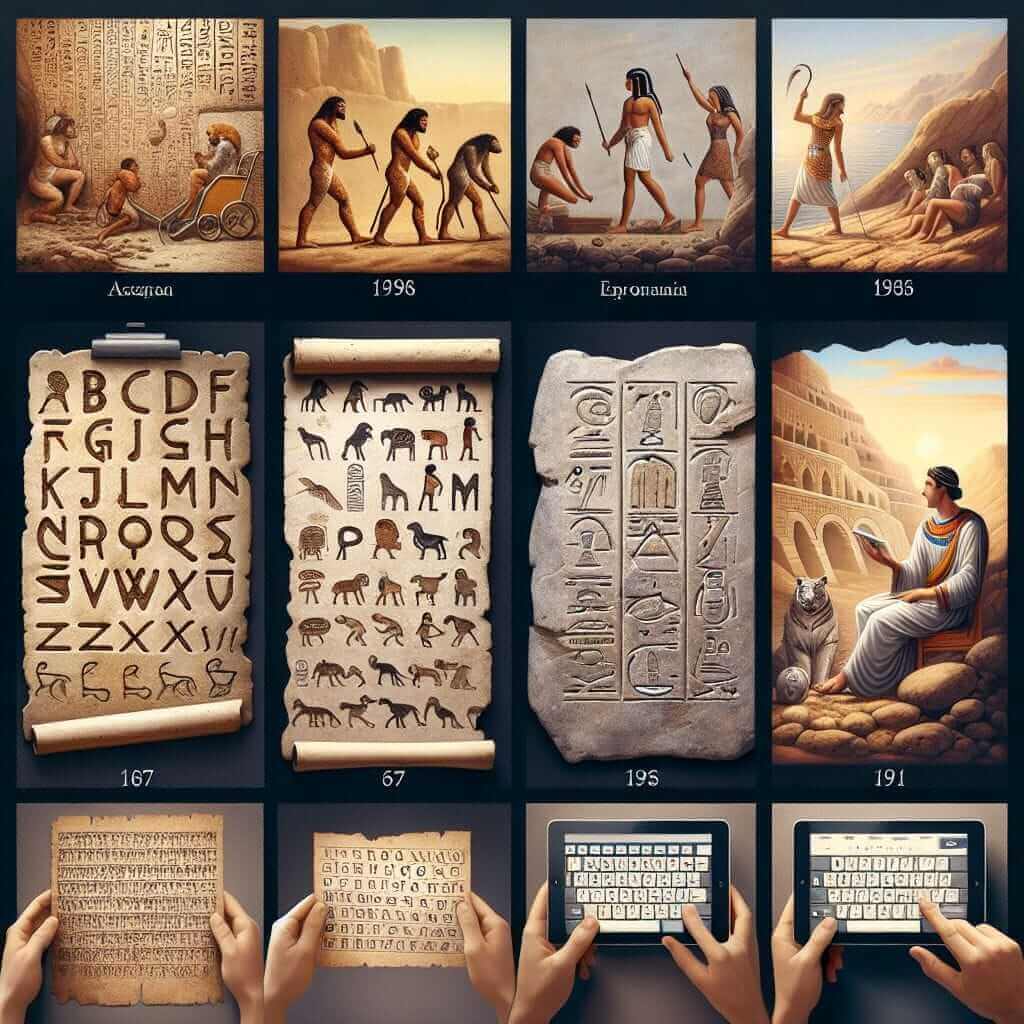Why Talking About the History of Writing Matters in IELTS Speaking
The IELTS Speaking test evaluates your ability to communicate effectively in English. While you won’t be quizzed on historical facts, being able to discuss a topic like the origins of writing demonstrates your vocabulary, fluency, and ability to engage in a thoughtful conversation.
Understanding the Task
Imagine encountering this cue card in the IELTS Speaking test:
Describe a significant invention that you believe has had a profound impact on human civilization.
You might be tempted to jump into discussing computers or smartphones. However, the invention of writing is a fantastic choice for this type of question. Let’s explore why:
- Universality: Writing systems have developed independently across various cultures, making it a relevant topic for a global test like IELTS.
- Historical Significance: You can delve into the evolution of writing from ancient cave paintings to modern alphabets, showcasing your understanding of historical progression.
- Impact on Society: Writing enabled communication over distances, the recording of knowledge, and the development of law and governance – all crucial aspects of civilization.
Structuring Your Response
1. Introduction
- Begin by stating your chosen invention: “I believe the invention of writing has been one of the most significant developments in human history.”
- Briefly explain your reasoning: “It revolutionized how we communicate, preserve information, and ultimately, how our societies function.”
2. Describing the Invention
- Provide a concise overview of writing’s origins. You don’t need to be an expert, but mentioning key stages like pictographs, ideograms, and the development of alphabets shows a good breadth of knowledge.
- Example: “Early humans used cave paintings to record their experiences, which eventually evolved into more symbolic representations like those found in ancient Egypt and Mesopotamia.”

3. Elaborating on the Impact
- This is where you demonstrate your ability to think critically and connect ideas:
- Communication: “Writing broke down geographical barriers, allowing for the exchange of ideas and trade over long distances.”
- Preservation of Knowledge: “Imagine if every generation had to start from scratch! Writing allowed us to build upon the knowledge of our ancestors.”
- Development of Societies: “Written laws, contracts, and religious texts helped to establish order and structure within societies.”
4. Conclusion
- Briefly summarize your points: “The invention of writing truly transformed humanity, paving the way for the complex societies we live in today.”
- Add a personal reflection (optional): “Personally, I can’t imagine a world without books, letters, or even text messages – it highlights how essential writing is to our lives.”
Tips for Success
- Don’t Memorize: Focus on understanding the key concepts so you can adapt your response to different questions.
- Practice Speaking Clearly: Pay attention to your pronunciation, intonation, and pacing. Record yourself to identify areas for improvement.
- Use Linking Words: Words like “furthermore,” “in addition,” and “consequently” help create a cohesive and well-structured response.
- Show Enthusiasm: Speak with passion and engage with the topic to make a positive impression on the examiner.
By approaching this topic strategically and with thoughtful preparation, you can demonstrate your English proficiency and impress the examiner in the IELTS Speaking test.